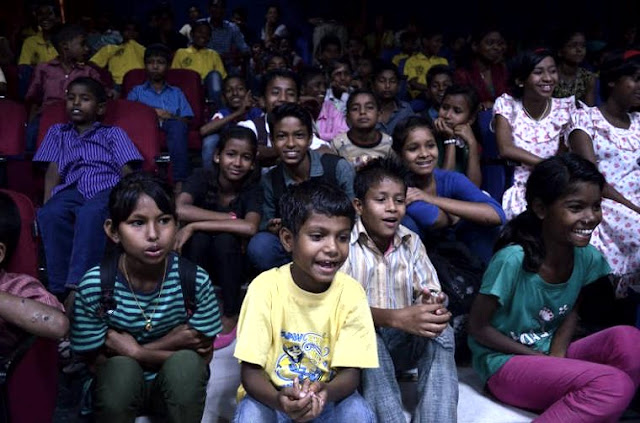Trafficking in human beings is a multi-billion-dollar form of international organized crime, constituting modern-day slavery.
Victims are recruited and trafficked between countries and regions using deception or coercion. They are stripped of their autonomy, freedom of movement and choice, and face various forms of physical and mental abuse.
There are three main types of human trafficking:
Trafficking for forced labour;Trafficking for sexual exploitation;Trafficking for the harvesting of tissue, cells and organs.People smuggling
Closely connected is the issue of people smuggling in which smugglers procure, for financial or material gain, the illegal entry of an individual into a country of which he is neither a citizen nor a permanent resident. Generally speaking, once payment is completed, the relationship between the migrant and the smuggler is terminated.
Irregular migration is not a new issue, but is one that has taken on new proportions in recent years, especially in the Mediterranean region. Transnational organized crime groups are taking advantage of this crisis in order to make huge profits. They facilitate the passage of migrants across borders in return for payment, with little or no regard for their safety and wellbeing.
Linked to people smuggling and human trafficking are other crimes such as illicit money flows and the use of fraudulent travel documents.
INTERPOL's response
Trafficking in human beings is a crime under international law and many national and regional legal systems. Given the complexities of the issue, a multitude of strategies are necessary at a range of levels in order to reduce the problem.
Operations and projects – concrete action in the field to dismantle human trafficking networks;INTERPOL tools – technical tools and systems for sharing information globally;Partnerships – strengthening our approach by working across sectors;Events and conferences – bringing together experts from across the world.
We have collated a number of resources covering general information, international legislation, and law enforcement guides and manuals.
Operations:
At INTERPOL, we support national police in tactical deployments in the field, aimed at breaking up the criminal networks behind trafficking in human beings and people smuggling.
Operations are preceded by training workshops to ensure that officers on the ground are trained in a range of skills, including specialist interview techniques and the use of specialized equipment.
Deployments effectively combine police action with input from a number of different sectors such as customs and environmental officers, non-governmental organizations, officials from the Ministries of Health and Social Affairs, and prosecutors.
1. Forced child labour.
2. Smuggling Training Operation Programme (STOP)
A number of operations have targeted forced child labour in Africa.
Operation Akoma (2015)
More than 150 children, aged between five and 16, were rescued following operations in Côte d’Ivoire and Ghana targeting child trafficking and exploitation. The ongoing operation has so far led to the arrest of 25 people involved in forcing the children to work in extreme conditions, seriously jeopardizing their health.
Focused on the agricultural and trade sectors, the operations were run in partnership with the International Organization for Migration.
More than 250 officials representing law enforcement, government, immigration, forestry, social and medical services, were trained prior to the operation. Training covered the identification of cases and ensuring rescued children received the necessary care before eventually being returned to safety.
Read the Operation Akoma media release (22 June 2015)
Operation Nawa (2014)
In an operation against child trafficking and exploitation, law enforcement authorities in Côte d’Ivoire rescued 76 children believed to have been trafficked across West Africa for the purposes of illegal child labour.
Some 170 Ivorian law enforcement officers participated in Operation Nawa, in which gendarmes, police and forestry agents targeted cacao fields and illegal gold mines in five areas across the Soubré region. With the majority of the suspected child trafficking victims believed to originate from Burkina Faso and Mali, the operation led to the arrest and sentencing of eight traffickers (five men and three women).
Read the Operation Nawa media release (4 April 2014)
Operation Tuy (2012)
Nearly 400 victims of child trafficking were rescued across Burkina Faso in an operation coordinated by INTERPOL.
The children, some as young as 10 years old, were discovered working under extreme conditions in illegally-operated gold mines and cotton fields. More than 70 individuals were arrested for child trafficking and labour offences.
Read the Operation Tuy media release (22 November 2012)
Operation Bia (2011)
In an operation codenamed Bia II, INTERPOL joined forces with national authorities in Ghana to rescue child victims of forced labour.
The children, aged from five to 17 had been trafficked from other parts of the country to work on fishing boats, often up to 14 hours a day. Ghana’s police rescued 116 children and arrested 30 suspected traffickers, 28 of whom were later sentenced in court for exposing children to danger and engaging minors in hazardous activities.
Read the Operation Bia II media release (25 May 2011)
Operation Bana (2010)
Police in Gabon rescued more than 140 children who had been trafficked from 10 different countries to work as forced labour in local markets, in an INTERPOL-led operation codenamed Bana.
Some 44 people were arrested in the operation, which was the first operation of its kind in Central Africa. During the operation, teams of officials carried out checks at market stalls in the capital city Libreville, where children as young as six years old were working in a variety of roles, from carrying heavy goods to selling products.
Read the Operation Bana media release (20 December 2010)
Operation Cascades (2010)
More than 100 suspected child trafficking victims were identified and taken into care and 11 individuals arrested, following an operation led by police in Burkina Faso and supported by INTERPOL. Dozens more children were also returned to their families following child labour investigations.
During the three-day operation, police officers checked highways linking Burkina Faso’s capital to other regions in the country and to adjoining countries, and also raided illegally-operated gold mining quarries in the Cascades region.
Read the Operation Cascades media release (5 November 2010)
Operation Bia (2009)
INTERPOL's first-ever police operation targeting child trafficking in West Africa resulted in the rescue of more than 50 child workers and the arrest of eight people in connection with the illegal recruitment of children. The children were of seven different nationalities – demonstrating the extent of transnational child trafficking in the region – and had been bought by plantation owners needing cheap labour to harvest the cocoa and palm plantations. The children were discovered working under extreme conditions, forced to carry massive loads seriously jeopardizing their health.
Read the Operation Bia news story (3 August 2009)
READ MORE
Trinity Mount Ministries Website:
http://www.TrinityMount.Info






















